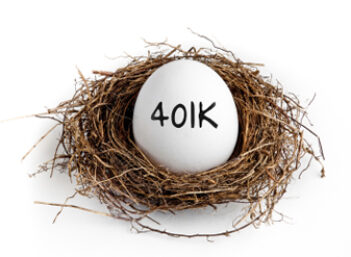Way back in the Summer of 2012, a person walked into a Maverik convenience store in Meridian, Idaho, and bought a Powerball lottery ticket.
Powerball, as many know, is a simple $2 bet: Pick six numbers, and if your numbers match the drawing you win millions. If you match the first five, you'll still win a cool $1 million.
That's exactly what happened for that lucky convenience store customer. The problem, of course, was the deadline, which required players claim their prize within six months of the drawing. The deadline passed, the 'winner' never showed up, and the $1 million prize went back to the lottery.
The moral of the story is that disorganization costs you. Missing deadlines costs you.
This is especially true before and during your retirement years. You may think that once you're close to retirement, you'll care less about deadlines and more about relaxing. Though that's a nice idea, those years before retirement actually have some of the most important investing deadlines of your life.
Here are eight crucial retirement deadlines you can't afford to miss, ordered by age:
1. Age 50 - You Can Start Making Catch-Up Retirement Contributions
If you've been a good saver and you're turning 50, your big problem might be how to deal with that bald spot. But for most people, 50 is a financial wake-up call. That's why once you turn 50 you're allowed to start contributing $6,000 more a year (these are called 'catch-up contributions') to your 401(k) or $1,000 more per year to your IRA or Roth IRA than those spring chickens can.
Each year, be sure and do an online search for 'catch-up contribution limits' to check the IRS limits, as the amount you're allowed to contribute may grow with inflation.
[Also see: Rescue Your Retirement in 3 Steps -- Even at Age 60]
2. Age 55 - You Can Make Early 401(k) Withdrawals Under Special Circumstances
If you get laid off, lose your job, or otherwise stop working for your former employer when you're 55, the IRS allows you to start taking withdrawals from your 401(k) plan without paying a huge IRS penalty to do it. If you're keeping your job, you have to wait until you're age 59 ½.
3. Age 59 and a half - You Can Make Normal Retirement Withdrawals Without Penalty
This is when you can start taking withdrawals from your IRA and 401(k) without paying a huge IRS penalty to do it (the penalty hurts, too: income tax plus 10% on the proceeds). Generally, you can make penalty-free withdrawals before this age if the money is for a first-time home purchase or to pay educational expenses.
4. Three Months Before You Turn 62 - You Can Take Early Social Security Benefits
Ever ask yourself, 'How much social security will I get at 62?'
This is the earliest many people can apply to begin receiving Social Security benefits. However, it's important to note that the earlier you opt to get benefits, the smaller those benefits will be. According to the Social Security administration, at age 62, you only get 70% of the monthly benefit you would get if you waited until 67. Spousal benefits may also be lower.
5. Three Months Before You Turn 65 - You Can Apply for Medicare
A lot of people ask, 'when can I get Medicare?' The answer is, you may sign up for Medicare three months before your 65th birthday. You can apply for Medicare at SocialSecurity.gov.
Remember, Medicare has four parts: Part A (which covers hospital stays), Part B (which covers doctor visits and other medical services), Part C (also called Medicare Advantage; it pays for stuff that Parts A and B don't cover), and Part D (for prescriptions).
Don't wait until your 65th birthday or after -- you can't just stroll in and sign up when you feel like it. If you miss the deadline three months before your birthday, you'll have to wait for the 'general enrollment period,' which runs from January 1 to March 31 of each year, and then your coverage doesn't begin until July.
Besides the fact that procrastination can mean going a while without coverage, you'll also pay more for your coverage. (Medicare is not free -- you have to pay a monthly premium.) If you enroll late, you have to pay a higher premium (about 10% higher for each 12-month period you were eligible for Medicare but didn't enroll).
Of course, if you're one of the millions of people who plan to keep working after age 65 and want to stay on your employer's health plan, you don't have to sign up for Medicare three months before your 65th birthday and you don't get hit by the 10% surcharge for waiting. Instead,
Medicare lets you wait until you stop working, go part-time, or do something else that involves leaving your employer's plan -- but you have to sign up for Medicare no later than eight months after you leave the health plan.
6. Age 65 - You Can Collect 86% of Your Social Security Benefits
This is another common age at which to start taking Social Security benefits. Though you can start getting them as early as age 62, you'll get more per month if you wait until your retirement age, which varies based on when you were born. Your spouse's benefits may also be lower.
However, at 65, some people will still only get 86.7% of what they'd get if they wait until they're 70 to start collecting. Check the Social Security Administration's website for a series of calculators that will help you get a handle on your specific benefit situation.
7. Age 67 - Full Retirement Age - Collect 100% of Your Social Security Benefits
Right now, this is the age at which you'll receive the maximum Social Security benefit if you were born in 1960 or later -- if you can hold off that long. It's important to note, however, that your benefits vary according to how much you've put into the plan and what year you were born.
Find out how your birth year affects your benefits at the Social Security Administration's website (do an online search for 'SSA full retirement age').
8. April 1 After You Turn Age 70½ - Take Your RMDs
At this point, it will start to seem like everybody wants you to start taking your money back. This is when you are to take your required minimum distributions (RMDs) from tax-deferred retirement plans such as 401(k)s and IRAs (except a Roth IRA) every year -- even if you're still punching a clock every day.
So, if your birthday is September 21 and you turn 70 ½ on March 21, 20XX, by April 1, 20XX, you must start withdrawing money from your 401(k). Keep in mind that because these distributions went into your retirement accounts tax deferred, your RMDs will be taxed as normal income, so be prepared to pay when it's time to file for taxes.
Life is full of deadlines, and retirement planning is a part of life. So be sure to know when you need to apply for benefits if you want to maximize your retirement benefits and ensure that your money stretches as far as it can go.
Extra Tip: You will be more financially secure in retirement if you pay off your debts sooner rather than later. Here are three great ideas that will help:
1. Pay off your mortgage to free up an extra $1,000 to $2,000 every month. Check out 3 Ways to Pay Off Your Mortgage 15 Years Early.
2. Free yourself from credit card debt. Learn how to pay 0% on your balances for up to 21 months in The 4 Best Credit Cards for Balance Transfers.
3. Shrink and eliminate your car payments. If you're paying 6% APR or more, it's time to know The Top 3 Reasons to Refinance Your Auto Loan.



